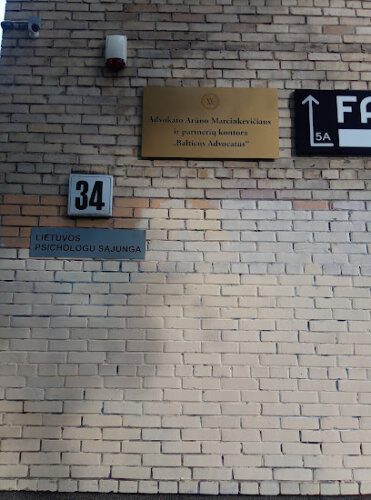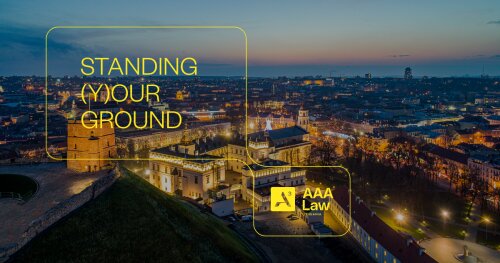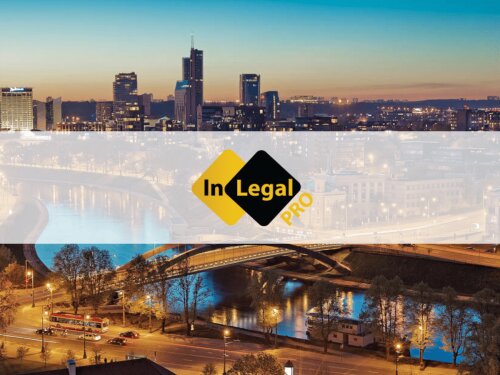Best Citizenship Lawyers in Vilnius
Share your needs with us, get contacted by law firms.
Free. Takes 2 min.
List of the best lawyers in Vilnius, Republic of Lithuania

About Citizenship Law in Vilnius, Republic of Lithuania
Citizenship in Lithuania is governed by national laws that apply uniformly throughout the country, including Vilnius, the capital. The Republic of Lithuania offers citizenship primarily through three avenues: by birth, through naturalization, and by restoration for those who have lost their Lithuanian citizenship. Lithuania does permit dual citizenship, but only under specific circumstances, such as Lithuanian descent. The legal framework surrounding citizenship is designed to ensure national security, preserve cultural heritage, and promote social unity.
Why You May Need a Lawyer
There are several situations where seeking legal advice on citizenship matters may be necessary or beneficial. If you are an expatriate or immigrant seeking to obtain Lithuanian nationality, navigating the legal requirements and documentation can be complex. Additionally, those looking to restore their citizenship by descent might require proof of ancestry and other intricate legal details. A lawyer specializing in citizenship law can provide insights and assistance, especially in cases where applications are denied or when there are intricate legal nuances to address.
Local Laws Overview
Lithuanian citizenship law is primarily encapsulated in the "Law on Citizenship of the Republic of Lithuania" which outlines eligibility, rights, duties, and the process of obtaining, restoring, or losing citizenship. Notably, to apply for naturalization, foreigners must meet conditions such as residing in Lithuania on a permanent basis for at least ten years, having proficiency in the Lithuanian language, a legal source of support, and passing an examination on the fundamentals of the Lithuanian Constitution. Moreover, certain conditions allow for maintaining dual citizenship, typically related to ethnic heritage or political asylum.
Frequently Asked Questions
What are the primary ways to acquire Lithuanian citizenship?
You can obtain Lithuanian citizenship by birth, through naturalization if you fulfill specific residence and language requirements, or by restoring it if your ancestors were Lithuanian.
Can I hold dual citizenship in Lithuania?
Dual citizenship in Lithuania is allowed only in specific exceptional cases such as those related to Lithuanian descent or if a person was exiled during historical upheavals. It is assessed on a case-by-case basis.
What is the required proficiency level in the Lithuanian language for naturalization?
Applicants must demonstrate a basic proficiency in the Lithuanian language, which typically involves speaking, writing, and understanding everyday language, often verified through a standard examination.
How long must I reside in Lithuania before applying for citizenship through naturalization?
You must have resided in Lithuania legally and continuously for at least ten years before applying for naturalization.
Is there a citizenship exam I need to pass?
Yes, applicants must pass a citizenship exam that includes questions on the Lithuanian language and the fundamentals of the Constitution of the Republic of Lithuania.
Can my children automatically acquire citizenship if I become a Lithuanian citizen?
Yes, in most cases, children under 18 of those who acquire Lithuanian citizenship through naturalization are also eligible to receive citizenship.
What documents are typically required for citizenship application?
Documents required usually include proof of residence, birth certificate, language proficiency certificates, proof of legal income, and sometimes proof of ancestry.
What can I do if my citizenship application is rejected?
If your application is rejected, you can appeal the decision within the Lithuanian legal system. Consulting a legal expert can provide the best course of action and increase your chances of a successful appeal.
How does restoration of citizenship work for those of Lithuanian descent?
If you have ancestors who were Lithuanian citizens, you may be eligible for citizenship restoration, provided you can substantiate your family's historical ties with proper documentation.
Where can I find more information on Lithuanian citizenship laws?
You can refer to the official Lithuanian Migration Department's website or consult legal professionals specializing in immigration and citizenship law for detailed guidance.
Additional Resources
For additional information on citizenship matters in Lithuania, consider reaching out to or visiting the following resources:
- The Migration Department under the Ministry of the Interior of the Republic of Lithuania
- The State Enterprise Centre of Registers
- Local Lithuanian embassies or consulates for expatriates
- Organizations like Migration Info Centre (MIC) "I Choose Lithuania"
- Legal aid societies that offer advice on immigration and citizenship
Next Steps
If you need legal assistance regarding citizenship in Lithuania, start by consulting with a legal expert who specializes in immigration and citizenship law. They can provide personalized advice based on your individual circumstances and guide you through the application process. It is also advisable to gather all necessary documentation and familiarize yourself with the requirements and expectations laid out by Lithuanian law. Engaging with legal professionals or government agencies early can help navigate complexities more efficiently.
Lawzana helps you find the best lawyers and law firms in Vilnius through a curated and pre-screened list of qualified legal professionals. Our platform offers rankings and detailed profiles of attorneys and law firms, allowing you to compare based on practice areas, including Citizenship, experience, and client feedback.
Each profile includes a description of the firm's areas of practice, client reviews, team members and partners, year of establishment, spoken languages, office locations, contact information, social media presence, and any published articles or resources. Most firms on our platform speak English and are experienced in both local and international legal matters.
Get a quote from top-rated law firms in Vilnius, Republic of Lithuania — quickly, securely, and without unnecessary hassle.
Disclaimer:
The information provided on this page is for general informational purposes only and does not constitute legal advice. While we strive to ensure the accuracy and relevance of the content, legal information may change over time, and interpretations of the law can vary. You should always consult with a qualified legal professional for advice specific to your situation.
We disclaim all liability for actions taken or not taken based on the content of this page. If you believe any information is incorrect or outdated, please contact us, and we will review and update it where appropriate.












